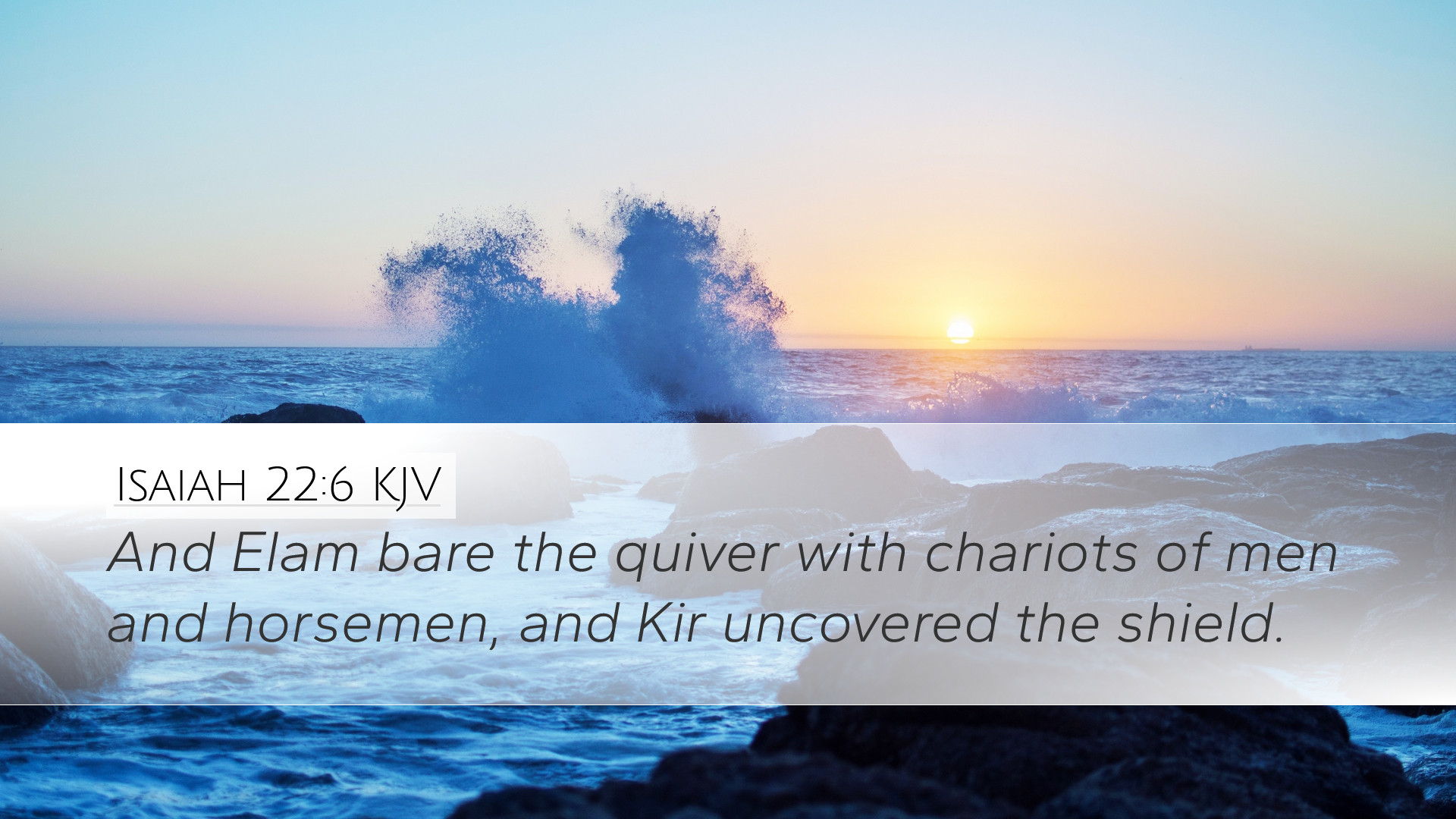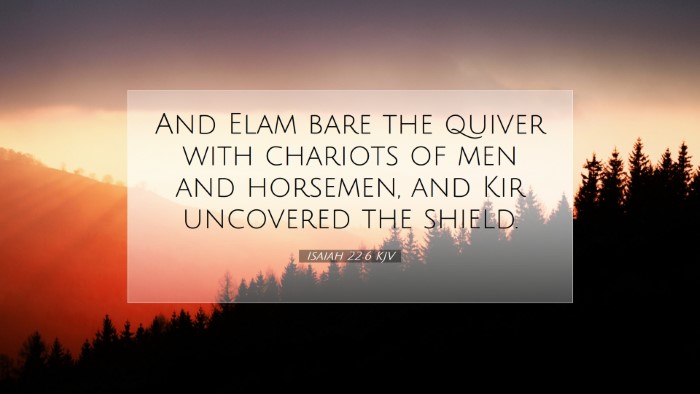Commentary on Isaiah 22:6
Isaiah 22:6 states:
"And Elam bore the quiver with chariots of men and horsemen; and Kir uncovered the shield."
Historical Context
This verse provides insight into the impending calamity faced by Jerusalem as foreseen by the prophet Isaiah. The mention of Elam and Kir points towards the political and military dynamics of the time, indicating alliances and conflicts that characterize the geopolitical landscape of the ancient Near East.
Insights from Public Domain Commentaries
Matthew Henry's Commentary
Matthew Henry highlights that the reference to Elam signifies an impending invasion and military action. Elam, corresponding to modern-day southwestern Iran, had historical relevance as a powerful kingdom that posed a threat to Israel. The quiver bearing chariots of men and horsemen indicates a formidable military presence, suggesting that Jerusalem is surrounded by adversaries.
Henry emphasizes that this verse paints a picture of great calamity and serves as a warning of divine judgment against the nation for their sin. He notes that the unraveling of the political stability in Jerusalem is a direct consequence of their forsaking of God’s covenant.
Albert Barnes' Notes
In his commentary, Albert Barnes delves into the specific geographic and military implications of the verse. He points out the strategic importance of Elam and Kir in the context of the Assyrian threat. This reflects a transition in power dynamics, where once allies could become adversaries, embodying the uncertainty of regional politics.
Barnes notes that the description of the armies with their quivers and shields illustrates the preparation and readiness for war. He cautions that such military might is rendered ineffective unless aligned with the favor of God, which Jerusalem had forfeited. He implies that the reliance on human power rather than divine intervention leads to eventual disaster.
Adam Clarke's Commentary
Adam Clarke offers a profound theological perspective, interpreting the military references symbolically. Clarke argues that Elam and Kir serve as representations of earthly powers in contrast to divine authority. He highlights how the emphasis on human strength and military preparation often leads to spiritual blindness.
Furthermore, Clarke points to the idea of uncovering shields as a display of vulnerability. In his view, this act signifies a departure from reliance on God’s protection. He interprets this military expedition not merely as a physical battle but also a metaphor for the spiritual battles faced by believers today.
Theological Reflections
The insights from these commentaries converge on a central theme of reliance on God versus reliance on human strength. The military preparations illustrated in Isaiah 22:6 serve as a poignant reminder that while nations prepare and strategize, true security comes from spiritual alignment with God's will.
Application for Pastors and Theologians
-
Call to Spiritual Vigilance:
This passage underscores the importance of vigilance in spiritual matters, urging both leaders and laypeople to prioritize their relationship with God above all else.
-
Understanding Divine Sovereignty:
It invites reflection on God’s sovereign control over nations and kingdoms, reminding us that human plans can be thwarted unless they align with divine purposes.
-
Engagement with Contemporary Issues:
Modern-day theologians are encouraged to draw parallels from this historical context, engaging with current political issues through a biblical lens.
Conclusion
Isaiah 22:6 serves as a profound illustration of the conflict between reliance on human strength and the necessity of divine guidance. As echoed by Matthew Henry, Albert Barnes, and Adam Clarke, the lessons derived from this verse are timeless, calling believers towards a deeper reliance on God amid tumultuous times.


